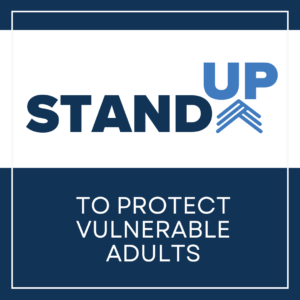This post originally appeared on the website of Simms-Showers, LLP. You can read it here.
Consider the following scenarios:
• Parents tell the pastor they believe, based on examination and the strange behavior of their 2-year-old daughter, that she was molested by her Sunday School teacher.
• A volunteer tells the pastor she has seen an adult Praise Factory worker take the same 3-year-old child to the bathroom alone consistently for several weeks and suspects something.
• A teenager tells the youth minister she has seen her 12-year-old friend spending a lot of time alone with the assistant youth pastor and that she suspects foul play.
• A middle-aged woman reveals to the pastor’s wife that she was abused more than twenty years ago by another church member who was an elder at the time.
While you may know how each of these situations would be handled internally within your church, one of the first issues that must be immediately addressed in both of these instances is the issue of reporting. This includes asking, “what obligation, if any, does my organization have to report this allegation to the authorities?” as well as “what do I have to include in my report, and when do I have to report it?” Many churches and non-profits put a lot of effort into investigating child abuse allegations and conducting damage control internally but don’t know and therefore don’t comply with the state-specific requirements to report allegations to the proper authorities. This article addresses these issues and provides a framework for your organization to discuss how to comply with these regulations.
Do you know when to sacrifice your ministry’s reputation to comply with reporting requirements?
Reporting requirements are state-specific. While the requirements vary, each state’s unique statutory framework for reporting child abuse allegations includes at least the following elements:
- Who is a “mandatory reporter” of child abuse;
- Who is a “permissive reporter”;
- What level of evidence triggers the reporting requirement;
- What has to be included in a report; and
- When the report has to be made.
Because each state is different, you should consult with competent legal counsel to know the requirements in your state and how they may apply to different scenarios. Although this article is not intended to replace competent legal counsel on these issues, the following is a summary of the relevant requirements in Virginia and surrounding jurisdictions in the mid-Atlantic region.
I. Mandatory vs. Permissive Reporters
Most states have a detailed and limited definition of who qualifies as a “mandatory reporter,” which is an individual who has a state-mandated duty to report any child abuse they suspect. This list typically includes doctors, social workers, teachers, and law enforcement professionals, although state-specific requirements, again, can vary and are very important. Virginia specifically includes the following categories of people:
- Persons age 18 or older associated with or employed by any public or private organization responsible for the care, custody, or control of children;
- Administrators or employees age 18 or older of public or private day camps, youth centers, and youth recreation programs.[1]
While churches and other non-profits may not fall into the other categories of mandatory reporters, these two categories would most likely include churches and their volunteers and employees, since churches typically provide care for children.
Some states will carve out an exception specifically for ministers and clergy, allowing them not to report alleged child abuse (usually called the “clergy-penitent privilege”). This privilege is key to a church’s life and ministry, since privates issues like child abuse are often not revealed until a close, counseling-type relationship has been established with a pastor or associate pastor. Virginia, Maryland, Pennsylvania, and the District of Columbia preserve the clergy-penitent privilege, while North Carolina has done away with the privilege completely in the context of child abuse and neglect reporting and judicial proceedings.[2]
Applying the clergy-penitent privilege is nuanced. Virginia’s penitent-privilege exempts from reporting only a “regular minister, priest, rabbi, imam, or duly accredited practitioner of any religious organization or denomination usually referred to as a church.” This exception does not apply to all the church’s employees or volunteers, and only applies to information that the church’s doctrine requires to be confidential, or to information acquired during a counseling session. Claiming such an exception may require that you plan ahead of time to structure and define the relationships your pastor has with other congregants. It is wise to consult with legal counsel ahead of time to apply these exceptions properly.
A permissive reporter is anyone who is not specifically defined as a mandatory reporter. Permissive reporters don’t have to report child abuse to the authorities in order to avoid a penalty, but it is clearly wise to encourage any permissive reporters in your organization to report allegations or suspicions to the leadership. Being a permissive reporter does not mean that liability cannot be attributed to the organization for failing to solicit information from a “permissive reporter” and take corrective action within the organization.
A few states make no distinction between mandatory and permissive reporters. For example, Maryland and North Carolina require that all persons who suspect abuse or neglect make a report, regardless of whether they qualify as a permissive or mandatory reporter.[3] In these states, without any additional privileges or protections, all employees, staff, and volunteers are mandatory reporters. If this applies in your state, make sure to have policies in place to collect these reports and ensure both you and your employees avoid liability.
II. Making a Report
The trigger for reporting varies from state to state, but most states require that a reporter make a report when (either in their official capacity as mandatory reporter or as a permissive reporter) they suspect or have reason to believe that a child has been abused.[4] In Virginia a mandatory reporter has to submit a report when “in their professional or official capacity, [they] have reason to suspect that a child is an abused or neglected child.”[5]
In most cases, concrete evidence is not necessary to make a report. After a report is made, Child Protective Services will investigate and determine whether the allegation is founded. Provided that the reporter makes a report in good faith, he or she likely will be shielded from civil liability. Further, the identity of the reporter is not released to the alleged abuser. However, some states will permit the release of the reporter’s name for limited purposes under specific circumstances, such as when the identity of the reporter is material to the abuse investigation or when there is a finding that the reporter knowingly made a false report.
Some institutions, such as schools and hospitals, have established internal policies for reporting abuse internally. In some states and the District of Columbia, the law permits a mandated reporter who is working at such an institution to report their suspicions to their superiors, who then make a report to the authorities. This is referred to as institutional reporting. Yet, reporting abuse to your superiors pursuant to internal policy does not necessarily release you from your duty to report directly to authorities, though in some states it may.[6] Other states, however, require that the worker contact the local authorities directly, internal reporting requirements notwithstanding.[7] Make sure you know which requirements apply to your organization. Create your policies to accommodate the legal reporting standards to enable your employees and staff to handle allegations wisely and avoid personal and institutional liability.
III. Penalties and Other Liabilities for Failing to Make a Timely Report
Mandatory reporters that fail to notify authorities as soon as possible are liable to civil and criminal penalties. In Virginia, for example, a mandatory reporter can be fined up to $500 for a first time offense of failure to report, and at least $1,000 for any subsequent failure.[8] If the abuse involves certain forms of sexual abuse, failure to report can be punished as a Class 1 misdemeanor, which can carry large fines and jail time.
In addition to civil fines and criminal liability, failure to report may also give rise to civil liability should a civil suit be brought against the church or organization. For example, In a recent Massachusetts case, the parents of a child abused by a church volunteer babysitter sued the church for negligence in failing to protect the child from the known dangerous propensities of the volunteer, and failing to warn other members of the church of the known dangerous propensities of the babysitter. The parents also sued on the grounds that the church waited sixteen days to report, instead of promptly reporting to the authorities. Although the court ruled that the delayed reporting was technically a violation of their statutory duty to report, the court ruled the violation did not prove a conspiracy to avoid reporting the babysitter’s abuse.[9] While the church was ultimately not held liable for its failure to report, the case underscores the importance of promptly reporting suspected child abuse to avoid claims of negligence.
Reporting can be an easy and simple part of addressing child abuse in your organization. But because some of these issues may be considered “common sense,” it can easily get overlooked. If these issues are not considered before child abuse is alleged, dealing with an allegation becomes chaotic and exposes you to liabilities for delay, negligent supervision, or even gross negligence. Make sure you consult legal counsel and put together a policy that will address your state’s requirements and best protect your organization and the children you serve.
Disclaimer: This memorandum is provided for general information purposes only and is not a substitute for legal advice particular to your situation. No recipients of this memo should act or refrain from acting solely on the basis of this memorandum without seeking professional legal counsel. Simms Showers LLP expressly disclaims all liability relating to actions taken or not taken based solely on the content of this memorandum. Please contact Robert Showers at [email protected], Daniel Hebda at [email protected] or Elyse Smith at [email protected]for specific legal advice on this issue for your needs. Simms Showers LLP © 2014
[1] VA Code Ann. 63.2-1509.[2] VA Code Ann. 63.2-1509; MD. Code Ann., Fam. Law. § 5-705; 23 PA Cons. Stat. §6311; D.C. Code Ann. §14-309; N.C. Gen. Stat. §7B-310.[3]https://www.childwelfare.gov/systemwide/laws_policies/statutes/manda.pdf , pg. 2 ((Delaware, Florida, Idaho, Indiana, Kentucky, Maryland, Mississippi, Nebraska, New Hampshire, New Mexico, North Carolina, Oklahoma, Rhode Island, Tennessee, Texas, and Utah).[4]Child Welfare Information Gateway. (2014). Mandatory reporters of child abuse and neglect. Washington,DC: U.S. Department of Health and Human Services, Children’s Bureau, https://www.childwelfare.gov/systemwide/laws_policies/statutes/manda.pdf , at 3.
[5] VA Code Ann. 63.2-1509.[6] See e.g., D.C. Ann. Code. § 4-1321.02 (reporter still has duty to report to authorities, even after informing the person in charge of the institution). On the other hand, see 23 Pa. Cons. Stat. §6311(c) (once employee reports abuse to superior, the superior assumes the legal obligation to report to authorities).[7] Supra note 5 at 2.[8] Va. Code §63.2-1509.[9] See Doe v. Corp. of the President of the Church of Jesus Christ of Latter-Day Saints, 81 Mass. App. Ct. 1126 (Mass. App. Ct. 2012).




